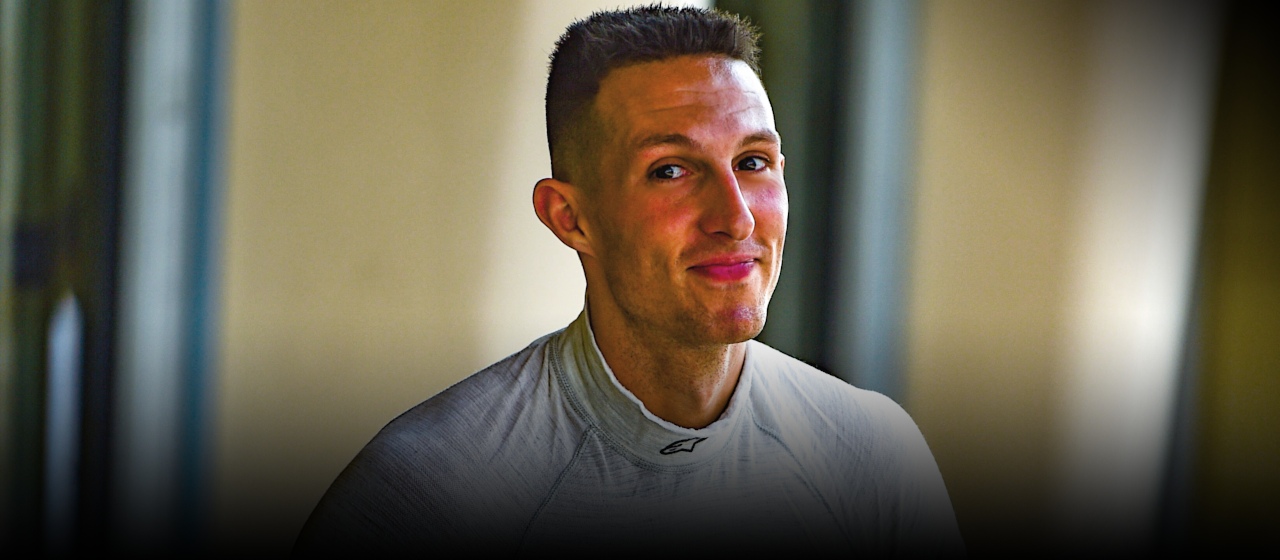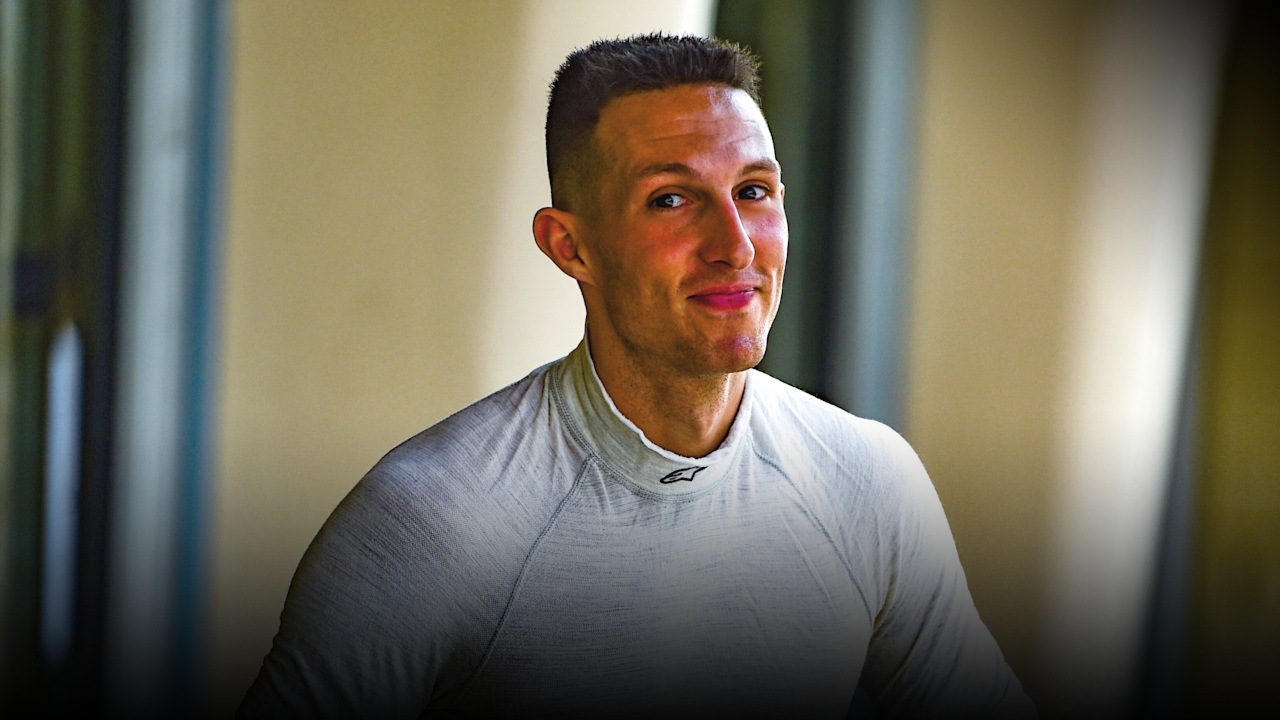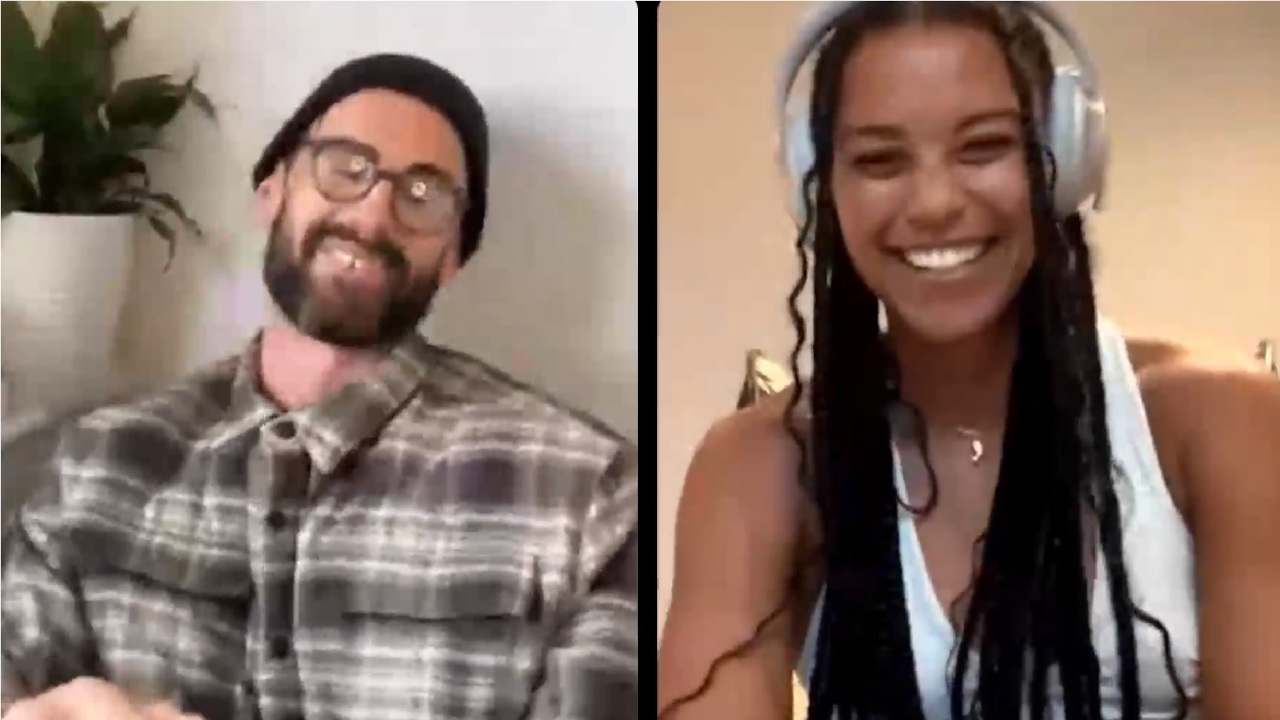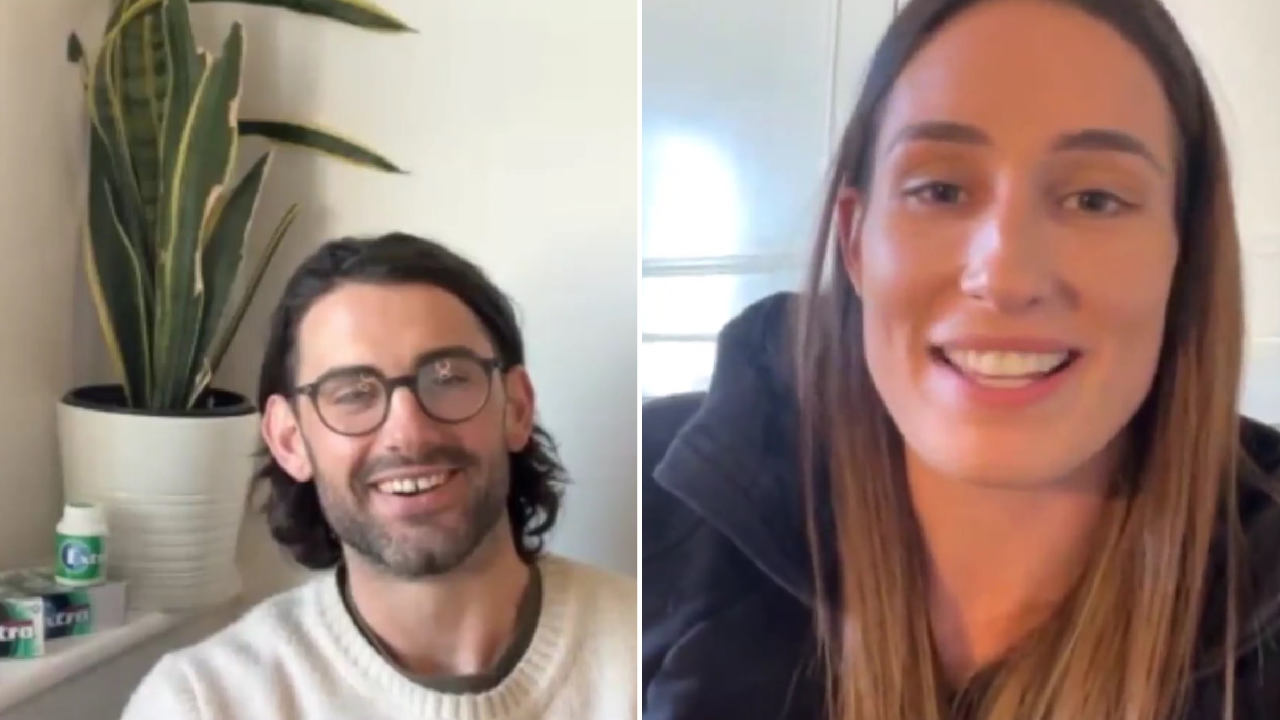Motorsport
It’s tearing you apart inside
When I chose my sport, I feel like I took on the impossible.
Most people who aren’t familiar with motorsport have no idea of the process drivers have to go through to get to the top. The sport itself is high risk, but the financial battle is the toughest.
Putting the helmet visor down and exiting pit lane is the moment I love. The racing is what I’m talented at, and it’s my job. The biggest stress comes from sourcing the funds to keep the car out there.
Most of the drivers I’m competing against have the resources where they can spend 95 per cent of their time focusing on the sport and being an athlete. For me, it’s a complete reversal.
There have been a lot of tough times where my head has been elsewhere and I’ve been under more stress than I’ve felt I could handle.
I’ve had issues with my mental health, and times where the financial pressures have had me looking for a quick fix, starting with a scan of ridiculous sports multi-bets as a shortcut out of my problems.
The driving is the easy bit.
I became obsessed
My dad, Greg, likes to say he kickstarted my motorsport journey by taking me to the first Australian Grand Prix held in Melbourne, in 1996.
I was six or seven and fell in love with the sport straight away – the sound, the speed, the power of the cars.
I was too short to see the track. Every lap, when the cars roared past us on Lakeside Drive, out near the golf course, dad would lift me up on his shoulders so I could get a glimpse of Damon Hill’s Williams flying past at 300kph.
That first night I went home and I was crying in my bed because my ears were still ringing from the noise. While my mum was worried about the sound, boys will be boys and I didn’t wear earplugs when I went with dad.
It was a shocking experience. In a good way, I guess, because otherwise I would have given away any thought of this career right then.
I became obsessed with the sport. I went to the Australian GP every year. I’d somehow convince teachers to let me have the Friday off school so I could go and watch the practice. And I never missed a race on TV. It didn’t matter if it was 10pm or 2am.
I was drawn to Michael Schumacher and Ferrari’s red car and I started reading all I could about him and his commitment to the sport. He revolutionised how it’s not just about the driver but how you build a team around you, and the focus on fitness and other areas that can help you gain that minimal edge. It was cool when I became teammates with his son a few years ago.
Early on, dad took me go-karting and we found out quickly that I was good behind the wheel. The guy there told my dad “you should get him into go-karting properly”.
I could see dad’s mind ticking over. If your kid wants to play footy or karate you grab a pair of boots or a white karategi and off they go. It’s nothing like the expense involved in just getting started in karting.
Most drivers have the resources where they can spend 95 per cent of their time focusing on the sport. For me, it’s a complete reversal.
I spent almost ten years begging for a go-kart under the Christmas tree. In the end dad got fed up and gave in.
It’s a seriously expensive sport. When you’re starting out you are spending $20,000 to $60,000 a year. That’s a base level.
Once dad got me my first kart I was on my own. I think my parents probably thought it was a bit of a phase, that I was dreaming. But I was very committed. I don’t know how I had the vision that I was going to push through, but looking back it’s been an amazing journey.
Most drivers start out and their family pays all the money, either personally or through a business of theirs. That’s the tip of the iceberg. From there it gets more and more expensive. And go-kart level is nothing compared to what I’m doing at the moment internationally.
I’m not the only driver who hasn’t come from an extremely wealthy background, but most have. It’s almost unheard of for drivers to progress in the sport without a high level of family support and it’s something I’m really proud of – that I’ve managed to do it through investors and corporate sponsors who have believed in me.
My family have always been incredibly supportive of me in all areas of my life but everything in my racing journey I’ve had to source myself – even down to a new pair of gloves.
It can be dangerous for drivers who are funded by their parents, not grasping the value of money. If you’re competing in F2 or F3 in Europe on the Formula One calendar you’re spending 1-2 million Euros a season. That’s like buying a serious property every year.
I’d find it hard to accept my parents spending that on me – even if they could – and I can imagine those ‘lucky’ drivers face another type of pressure altogether. Imagine your parents were funding you to that level – the pressure to perform and, if you don’t, how that impacts your family relationships.
I have my own pressures. I’m not the only one. There are a lot of drivers out there who are struggling because they’re in this spiral of trying to find money, and it’s tearing you apart inside and impacting the rest of your life.

Controlling the risks
Motor racing revolves around glamour and money. It’s a confidence sport where people want to present themselves and show off in the right light.
The temptation to look at gambling as a quick fix stemmed from how quickly, at times, I needed to come up with finances at short notice, sometimes to save my career.
Similar to going up against the clock on the racetrack, I was always up against it off track, needing to source funds in between races when things got tough.
While I was always working through proper channels creating effective partnership and investment programs, they take time and sometimes I didn’t have any.
If I wasn’t able to get something over the line in time in the ‘proper’ way, I’d start thinking “how can I fix this situation urgently?”
I would look at multi-bets that I dreamed could instantly fix something over a weekend, with my thoughts spiralling into how easy that would be versus the constant graft required to get the sponsorship and investment in other ways.
I realised the outlandish multi-bets weren’t that realistic, but then started with other scenarios. What if I reduced the odds but put more money on? The thoughts come in about how quickly you could fix something.
I’m in a sport that has high risk but it’s about controlling that risk. In motorsport quick fixes never work, they just make things riskier.
Gambling is like speeding on the road. It’s a cheap thrill, anyone can do it, but the danger and consequences are so high. If you invest in something else, like property, it’s a longer game but it’s like motorsport, a controlled environment. There are risks, but it’s done properly with checks and balances.
Last year when I was going through a tough time mentally I started looking for something that could take away the pain, as a distraction, and something with the illusion of being able to fix my situation quickly.
That’s the dangerous thing about gambling. It’s thrust in our face so much and carries this sense of it being banter with the boys, and a happy, cool, fun thing.
When you’re going through a tough time there is a natural tendency to look for avenues to replace that pain.
I’ve been trying to take control of my thoughts and really understand the proper process in life. I’ve worked so hard for so long trying to do it the proper way it would just be such a letdown to allow myself to go down another path like that.
It’s not something I ever thought about early in my career, but the temptations were there recently.
And I was grappling with my thoughts. I could sense the dangers of them and fought to take control of the wheel of my life.
It’s hard to ignore the temptation these days, especially how a bet can be made at the touch of a finger.
That’s the dangerous thing about gambling. It’s thrust in our face so much.
Gambling can be accessed almost instantly which is dangerous when you have that impulse, and it can be acted on immediately without the ability to think things through.
While I never had a massive win, a few years ago a mate and I were lucky enough to win over a $1000 a couple of times quite easily on some F1 races off a very, very small outlay.
That got me thinking again about how easy it could be, from a very small bet, to fix a problem quickly.
However I would need to find substantially more than that so I probably got drawn in to looking at outlandish multi-bets, and a few times they nearly came off which gets your mind ticking and drawn into doing it again and again.
Thankfully, I never got drawn into betting large amounts and never lost a huge amount of money, but I think it would have been easy to go over the edge. My mind did wander to increasing the bet amount and giving myself lower odds and hopefully a chance at fixing the problem.
However, I’m really proud of how I managed to take control and stop myself from going down that path; a path that sadly a lot of people can’t avoid.
I guess it’s similar to how it’s so important when driving a race car not to do something emotional. We have to stay calm in the car. Even if we are angry at another driver on the track, the worst thing you can do is lash out and make impulse decisions.
In the off-track sense I think I managed to grab control of the wheel and I knew I had too much to lose given this has been my entire life and everything I’ve worked on for years.
I also have so many great sponsors and investors and I just couldn’t put my career even further in jeopardy by betting large amounts of funds when it was financial support that I needed. It just didn’t make any sense.
What else helped to stop me was talking with the psychologist I’ve been seeing for over a year now. Gambling and mental health issues often go hand-in-hand. If you are struggling, support is available.
Racing wasn’t the only part of my life that led to depression, and the temptation of gambling wasn’t the only outlet I was contemplating when I was in a dark place.
I was already losing control in other areas of my life and so it was about realising I couldn’t and shouldn’t hurt myself. The lure of gambling to fix things was just one area that I needed to take control over.
The coping mechanisms I learnt for those other issues I was dealing with also helped ensure whenever I felt in a dark place and whenever I felt stressed with racing that I didn’t go down that path.
However, with so many guys probably dealing with mental health issues without realising, gambling is such a danger to ease the pain on your emotions and can send you spiralling even further – like a bad drug where you get pulled in further and further.

Am I hearing the truth?
2019 was one of the toughest years of my life.
The stress had been brewing for a while and people around me began to push me to go and get some help. I was quite defensive about that for a long while. Perhaps it was a fear of admitting there was a problem.
I’ve worked so hard and had a full belief in myself that I could make it in motorsport. So to admit that everything wasn’t completely right and talk to someone about it, it felt like everyone around me was right and I wasn’t as strong as I thought I was.
I’m glad I overcame that and started speaking with someone. A lot of why I needed to stemmed from the journey I’ve been on.
I was always really confident in my ability on the track but I began to feel undervalued by not being able to get the support I needed. It can play with your head.
Rejection is normal to me now. But it takes its toll when it’s constant for years. When you have your hope up all the time and it gets stripped away, it gets to you.
I was being told the right things – I present really well, my hunger and commitment was through the roof, what I was offering to sponsors and investors was perfect, but the support I needed wasn’t quite coming.
It felt like a ‘Shallow Hal’ scenario: “Am I hearing the truth?” I started to take it personally. It got to a point where I questioned if I’d gone on the right journey.
Early on, I felt people didn’t really think I could do this and I was the one who told them I was going on the path. As it looked like it might not eventuate I felt like I’d failed. I put so much of my life into it, how could I get passionate about something else?
What was the worst year of my life ended up as a really good season where I finished as vice-champion in the MRF Challenge back in February. I had a great championship and I’m amazed I was able to do that given where my head was a few months before.
I’m still working on my self-belief, my anxiety and depression but I am feeling in a better place than a year ago.
The coronavirus has been tough for everyone. I won the last race of the season and felt the next 12 months were in place with a sense of security I’d rarely felt before.
It was the highest point of my career. Everything was progressing and I had a lot of opportunities and people trying to help me, then a month later everything stopped. All sponsorships we had in place and discussions we had with potential investors came to a halt.
It brought me back to some of those feelings of the past. But I’ve used the time well and remained positive. I’ve trained hard, we rebranded and have a new website and the exciting thing is races are being announced to restart in September.

Plenty of life lessons
I live in Melbourne but I’ve raced overseas my entire career. I’ve been lucky to race on the Grand Prix schedule elsewhere but not yet at home.
There is a pathway back into racing in Australia with a new open-wheeler S5000 category that are keen to have me on board.
I’d always looked at coming back to Supercars but they’re going through a transition in the sport. The next few years are looking a little rocky and could be a hard sell to investors, so I’m still committed to the overseas journey. Bathurst is a bucket-list item for any Australian driver and I’d love to race there one day.
Dad lives in Thailand now and only occasionally comes to watch me race. It’s good when he’s there but sometimes you want to focus and not have your dad telling you how to drive!
He got me hooked and we definitely chose the wrong sport in terms of finances and the stress it puts on you. But while there have been massive downs, there have also been some incredible ups and plenty of life lessons.
I’ve been tempted to go down some wrong paths like gambling, but the resilience I built from the things I’ve had to overcome has helped teach me self-control and belief in myself.
I feel that the way that I’ve progressed through the sport, and fought for my place in it, has stopped me from being drawn down that path.
I hope that others can find that strength to overcome the temptations and not look for the quick fix.
More about: Gambling Harm Awareness | Mental health | Motorsport






 Load More
Load More